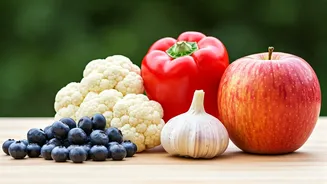Kidney Health Explained
The kidneys play a vital role in our health, acting as the body's sophisticated filtration system. Their primary job is to remove waste and excess fluids
from the blood, which is then eliminated as urine. These bean-shaped organs also manage blood pressure, produce hormones essential for red blood cell production, and regulate the balance of electrolytes in the body. They maintain a stable internal environment, a process known as homeostasis. When the kidneys are damaged or not functioning correctly, it can lead to a buildup of waste products in the blood, causing various health issues. Therefore, supporting kidney health through a balanced diet, regular exercise, and adequate hydration is essential for overall well-being. Understanding their functions helps appreciate the significance of kidney health.
The Power of Cranberries
Cranberries are more than just a festive treat; they're a powerhouse for kidney health, primarily due to their high content of antioxidants, which combat harmful free radicals and protect the kidneys from oxidative stress. Additionally, cranberries contain compounds like proanthocyanidins, which may help prevent urinary tract infections (UTIs), a common condition that can affect kidney function if left untreated. Regular cranberry consumption can help reduce the risk of UTIs. It's essential, however, to consume cranberries in their natural, less processed form. Fresh cranberries, cranberry juice without added sugars, or cranberry extracts can be incorporated into your diet. Be sure to drink plenty of water to flush out the waste products.
Apples: A Daily Treat
Apples are a readily accessible and beneficial food for kidney health. Rich in fiber and antioxidants, apples help to remove waste from the body and protect against damage. The high fiber content in apples is beneficial for overall digestive health. It also helps manage blood sugar levels, which is crucial for kidney health. Uncontrolled blood sugar can lead to kidney damage over time. The antioxidants in apples play a crucial role in safeguarding the kidneys from oxidative stress. Oxidative stress can damage cells, and by consuming apples regularly, you're providing your kidneys with a layer of protection against these harmful effects. Include apples in your daily meals; consume them raw, in salads, or as a snack.
The Benefits of Fish
Fish, especially those rich in omega-3 fatty acids, provides significant benefits for kidney health. Omega-3 fatty acids, found abundantly in fish like salmon, mackerel, and sardines, possess anti-inflammatory properties, which can help reduce inflammation throughout the body, including the kidneys. Kidney diseases often involve inflammation, and by incorporating omega-3-rich fish into your diet, you provide a defense against this harmful process. Consuming fish also offers a good source of lean protein. Choose fish prepared by grilling, baking, or steaming, rather than frying. Maintaining a healthy weight and consuming enough protein is vital for kidney well-being. Focus on including fish in your diet at least twice a week.
Cauliflower and Other Vegetables
Cauliflower, along with other vegetables like cabbage, broccoli, and Brussels sprouts, offers numerous advantages for kidney health. These vegetables are low in potassium, phosphorus, and sodium, which is particularly beneficial for people with kidney disease. They are packed with essential vitamins, minerals, and antioxidants, providing a comprehensive boost to overall health. Cauliflower is also a good source of vitamin C, an antioxidant that protects kidney cells from damage. The fiber in these vegetables promotes healthy digestion, which is crucial for removing waste from the body. You can incorporate cauliflower into your diet in numerous ways, such as steaming it, roasting it, or adding it to salads. Aim to include these vegetables in your meals regularly to support your kidney health.















